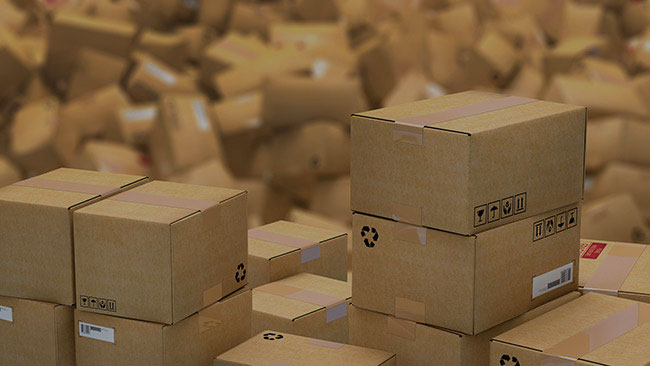
What extra charges can be added to a shipment?
Have you ever sent a package and ended up paying more than expected for the shipment? Or did your online order arrive with an additional payment request? Let’s look at the most common surcharges and discuss who should pick up the bill.
What am I paying for?
If you need to pay additional fees, there are three types of extra charges you could be billed for: duties and taxes, processing fees and carrier surcharges.
Let’s take a closer look at each of them.
Duties and Taxes
Duties and taxes are fees related to import and export regulations. They can be added to the total price at checkout or charged by customs when your parcel enters a country.
Here's how it works: Your carrier will prepay the fees and will ask the sender or the receiver to reimburse the costs. Some carriers will send a payment request to be paid before they deliver the goods. For online purchases, the seller's website or checkout page usually mentions who needs to cover these costs.
Processing fees
If your carrier takes care of customs clearance and the initial payment of duties and taxes, all you'll have to do is pay the bill when it comes. A fee for doing the work on your behalf will appear on the same invoice as the duties and taxes for your shipment.
Carrier surcharges
Carrier surcharges are also sometimes called service costs or administration charges. They cover anything that falls outside of the standard shipping price. Usually, these costs are charged to the sender. These are the five most common ones.
Fuel surcharge. Oil prices fluctuate continuously and that affects fuel prices. The fuel surcharge is a fee, added on top of the basic shipping price that helps your carrier cover these changing costs.
Special handling. When you’re shipping goods that are fragile, oddly shaped, or exceed your carrier’s standard dimensions, they’ll need to be handled separately. It’s a bit like getting extra legroom for your goods – so expect to pay more.
Dangerous goods. If you need to ship goods that potentially pose a risk to a person or other shipments, they’ll be handled as dangerous goods and will also incur additional charges.
Delivery to remote areas. Planning to send something to a remote island? If your carrier doesn’t have a regular service to that territory, they may still be able to deliver your package. Keep in mind that you may be charged an extra fee for that extra mile.
Address correction. Typos can be pricey, especially when your carrier needs to adjust the paperwork for you. Luckily, you can easily avoid this surcharge. Just check, check and double-check.
Relevant topics
The information provided on this page does not constitute legal, tax, finance, accounting, or trade advice, but is designed to provide general information relating to shipping. The Shipping Channel content, information, and services are not a substitute for obtaining the advice of a competent professional, for example a licensed attorney, law firm, accountant, or financial adviser. If you’re unsure of the shipping requirements that apply to you, check with your carrier and make sure to check the rules and regulations of the country you’re shipping from and to prior to shipping. You can find this information on government websites.


